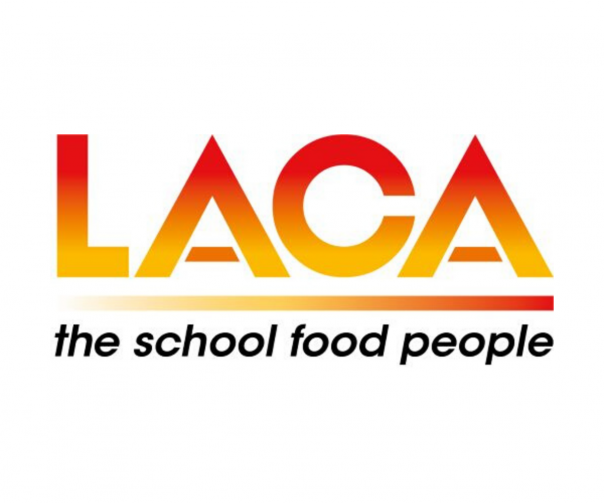Summary of the report by the House of Lords Committee on Food, Poverty, Health and the Environment

Overview
LACA provided evidence to the House of Lords Select Committee outlining the actions we believe should be taken to tackle childhood obesity and food insecurity. We focussed on increasing the funding for UIFSM, enforcing the school food standards and educating children and their parents on healthy food.
LACA have been mentioned twice within the report:
We were made aware of some potential mechanisms to monitor food standards. The Local Authority Caterers Association (LACA) suggested that Ofsted, the education standards body, could play a role. They advocated for the inclusion of: “Enforcement and monitoring of the School Food Standards across all schools including academies and free schools, inclusion of the school food offer and food education programmes into Ofsted inspections’
Some evidence emphasised that a lack of knowledge or skills around healthy eating was a crucial limitation in the ability to access healthy diets. This included the response from LACA, which suggested that there were three reasons for difficulty in accessing healthy diets: time, lack of education and skills, and portion control.
Structure of the report
The report is 193 pages long and is split into 7 chapters: Introduction, The current situation, poverty and Food Insecurity, The Food Environment, Reformulation and Regulation, Food and the Natural Environment, Government, Accountability and Food policy. The report then goes on to make 70 conclusions and recommendations.
Comments on free school meals can be found on page 70 and includes suggestions on UIFSM, the School Food Standards, Holiday Hunger, and Breakfast Clubs.
Key recommendations
- The decision to increase the funding for lunches during school closures is welcome. The value cannot be allowed to regress once children return to school. The allowance allocated to schools for free school meals must be uprated to at least the level provided during the school closures and linked to inflation thereafter.
- We recommend that the Government outlines how it intends to mitigate the impact that their eligibility proposals will have on those families who will lose eligibility for free school meals.
- We recommend that the Government must undertake rigorous research on the impact of Universal Infant Free School Meals on health and attainment outcomes and use the results of this evidence base to inform future policy on school meals, including breakfasts.
- The absence of any effective enforcement mechanism for school food standards means that the nutritional value of the food a child receives at school is one of chance rather than policy. It is difficult to understand what, in truth, the school food standards achieve.
- Monitoring and evaluation of the school food standards must be centrally coordinated to ensure consistent compliance. The Departments for Education and Health and Social Care should establish a joint task force responsible for monitoring and enforcing adherence to the school food standards. The taskforce should have the power to publish the names of non-adhering schools and where necessary require the development of an agreed action plan to meet standards.
- We recommend that the eligibility threshold for the National Schools Breakfast Programme is lowered and funding increased to ensure that the programme reaches all of those who need it.
- The National Schools Breakfast Programme must support and train facilitators to enable schools to access future external funding.
- Notwithstanding Government support to access funds, central funding for the National School Breakfast Programme must not be withdrawn all at once, producing a ‘cliff edge’ effect. The funding must be removed gradually and only when schools are able to access reliable sources of funding to sustain the clubs.
- We recommend that the Government should significantly extend the funding provided through the Holiday Activities and Food programme to ensure that more children can access holiday clubs. It should use generous thresholds based on the Income Deprivation Affecting Children Index to determine which areas should receive this funding.
- The planning environment must support the efforts of local authorities to limit the proliferation of fast food outlets around schools. The Government must conduct a review on the use of licensing and planning to ensure that:(1) local authorities are able to enforce exclusion zones of at least 800m around schools; and (2) when use of a building subject to use class A3 or A5 is transferred, new planning consent must be obtained.
- We note the potential and applaud the success of school-based schemes to encourage healthy lifestyles. We urge local authorities and school leaders, in discussion with classroom teachers, to build on the foundation already provided by the National Curriculum to integrate further education on healthy lifestyles into their offer.
More widely the committee wants the Government "without delay" to:
- Start to measure how many people live with food insecurity, and analyse why;
- Understand the cost of a healthy diet and incorporate this into benefits calculations;
- Act to curb excessive advertising and promotion of unhealthy foods by the food industry;
- Step up pressure on the food industry to reduce sugar, salt, unhealthy fats and calories in processed food, and introduce mandatory requirements where change has not happened;
- Ensure that food initiatives for disadvantaged children, such as Healthy Start and free school meals are properly funded, implemented and monitored;
- Establish an independent body to oversee the implementation of a National Food Strategy and report annually to Parliament on progress;
Use the opportunity of the Agriculture Bill to encourage production and consumption of healthier food and ensure that it delivers the public environmental goods it is designed to.
